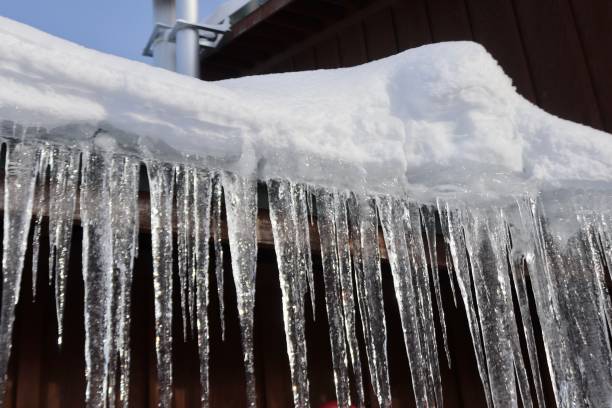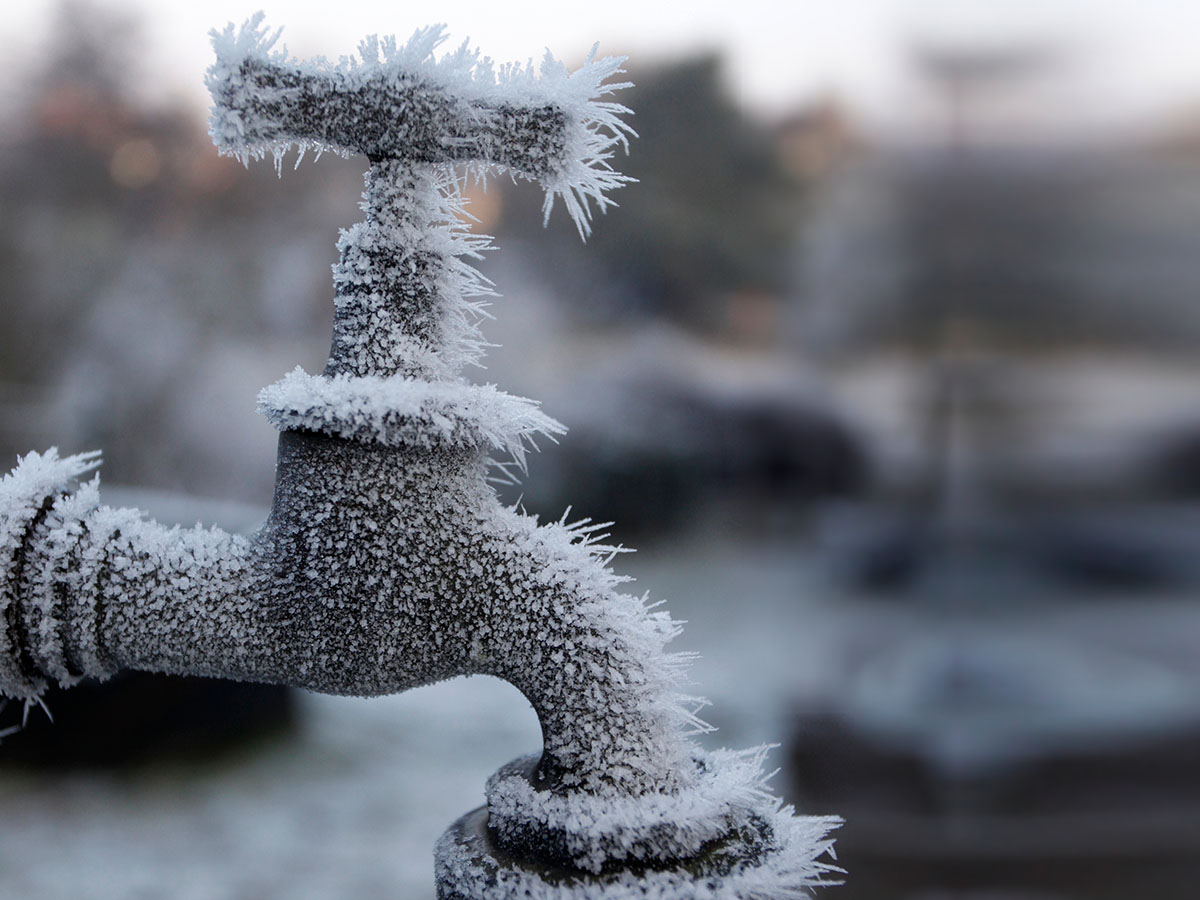Avoiding Frozen Plumbing in Winter: Professional Advice
Avoiding Frozen Plumbing in Winter: Professional Advice
Blog Article
Were you looking for related information concerning How To Avoid Freezing Pipes?

Cold weather can damage your plumbing, especially by freezing pipes. Right here's exactly how to avoid it from occurring and what to do if it does.
Introduction
As temperatures decrease, the risk of icy pipes boosts, possibly causing expensive repair services and water damage. Understanding how to stop icy pipes is essential for homeowners in cool climates.
Avoidance Tips
Shielding susceptible pipelines
Wrap pipelines in insulation sleeves or use warmth tape to safeguard them from freezing temperature levels. Concentrate on pipelines in unheated or outside locations of the home.
Heating methods
Keep interior rooms sufficiently warmed, especially areas with pipes. Open up closet doors to allow warm air to distribute around pipelines under sinks.
Just how to identify frozen pipes
Search for reduced water circulation from taps, uncommon smells or sounds from pipelines, and noticeable frost on revealed pipelines.
Long-Term Solutions
Architectural modifications
Think about rerouting pipelines away from exterior walls or unheated locations. Include additional insulation to attics, basements, and crawl spaces.
Updating insulation
Buy high-grade insulation for pipelines, attics, and walls. Correct insulation assists maintain regular temperature levels and decreases the risk of icy pipes.
Shielding Outdoor Plumbing
Yard pipes and exterior taps
Disconnect and drain yard tubes prior to winter season. Set up frost-proof spigots or cover exterior faucets with protected caps.
Understanding Icy Pipelines
What triggers pipelines to freeze?
Pipelines freeze when subjected to temperatures listed below 32 ° F (0 ° C) for expanded periods. As water inside the pipelines ices up, it expands, putting pressure on the pipeline wall surfaces and potentially triggering them to rupture.
Risks and damages
Icy pipelines can lead to water system disturbances, residential property damages, and pricey repairs. Burst pipes can flooding homes and cause extensive structural damages.
Indicators of Frozen Pipes
Identifying frozen pipes early can stop them from breaking.
What to Do If Your Pipelines Freeze
Immediate actions to take
If you think icy pipelines, keep faucets open to relieve pressure as the ice thaws. Make use of a hairdryer or towels taken in hot water to thaw pipelines gradually.
Verdict
Preventing frozen pipes calls for proactive actions and quick feedbacks. By understanding the causes, indicators, and preventive measures, home owners can shield their plumbing throughout winter.
Helpful Tips to Prevent Frozen Pipes this Winter
UNDERSTANDING THE BASICS: WHY PIPES FREEZE AND WHY IT’S A PROBLEM
Water freezing inside pipes is common during the winter months, but understanding why pipes freeze, and the potential problems it can cause is crucial in preventing such incidents. This section will delve into the basics of why pipes freeze and the associated problems that may arise.
THE SCIENCE BEHIND FROZEN PIPES
When water reaches freezing temperatures, it undergoes a physical transformation and solidifies into ice. This expansion of water as it freezes is the primary reason pipes can burst. As the water inside the pipe freezes, it expands, creating immense pressure on the walls. If the pressure becomes too great, the pipe can crack or rupture, leading to leaks and water damage.
FACTORS THAT CONTRIBUTE TO PIPE FREEZING
Low Temperatures: Extremely cold weather, especially below freezing, increases the risk of pipes freezing. Uninsulated or Poorly Insulated Pipes: Pipes located in unheated areas, such as basements, crawl spaces, or attics, are more prone to freezing. Insufficient insulation or lack of insulation altogether exacerbates the problem. Exterior Wall Exposure: Pipes running along exterior walls are susceptible to freezing as they encounter colder temperatures outside. Lack of Heating or Temperature Regulation: Inadequate heating or inconsistent temperature control in your home can contribute to frozen pipes. PROBLEMS CAUSED BY FROZEN PIPES
- Pipe Bursting: As mentioned earlier, the expansion of water as it freezes can cause pipes to burst, resulting in significant water damage.
- Water Damage: When pipes burst, it can lead to flooding and water damage to your property, including walls, ceilings, flooring, and personal belongings.
- Structural Damage: Prolonged exposure to water from burst pipes can compromise the structural integrity of your home, leading to costly repairs.
- Mold and Mildew Growth: Excess moisture from water damage can create a favorable environment for mold and mildew growth, posing health risks to occupants.
- Disrupted Water Supply: Frozen pipes can also result in a complete or partial loss of water supply until the issue is resolved.
WHY CERTAIN PIPES ARE MORE PRONE TO FREEZING
- Location: Pipes located in unheated or poorly insulated areas, such as basements, crawl spaces, attics, or exterior walls, are at higher risk of freezing.
- Exterior Pipes: Outdoor pipes, such as those used for irrigation or exposed plumbing, are particularly vulnerable to freezing as they are directly exposed to the elements.
- Supply Lines: Pipes that carry water from the main water supply into your home, including the main water line, are critical to protect as freezing in these lines can affect your entire plumbing system.
- Underground Pipes: Pipes buried underground, such as those connected to sprinkler systems or outdoor faucets, can be susceptible to freezing if not properly insulated.
https://busybusy.com/blog/helpful-tips-to-prevent-frozen-pipes-this-winter/

Do you like more info about How To Avoid Freezing Pipes? Create a remark below. We would be pleased to find out your insights about this entry. In hopes that you visit us again soon. Do you know another person who is very much interested in the topic? Be sure share it. Thanks for being here. Don't hesitate to come visit our website back soon.
Schedule Service Report this page